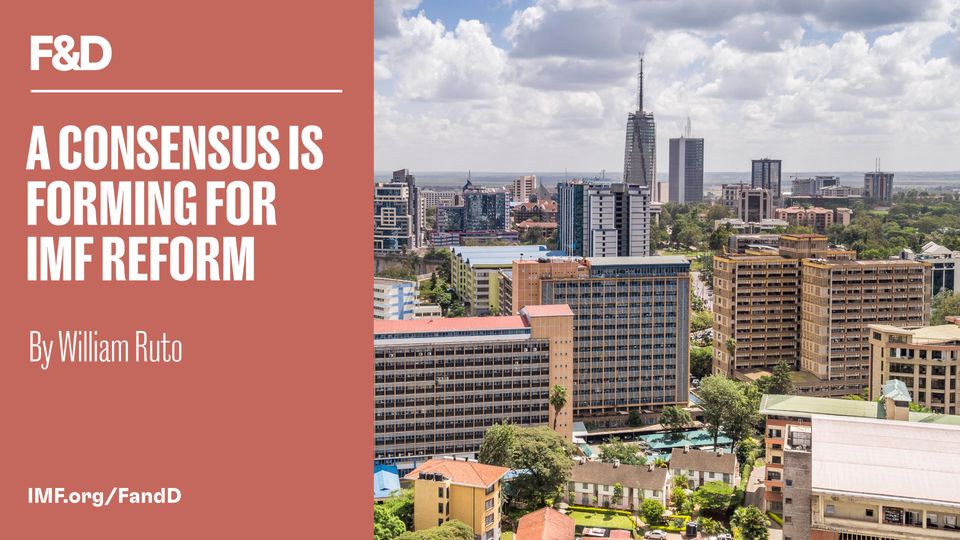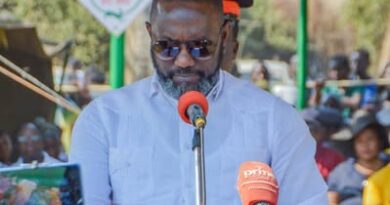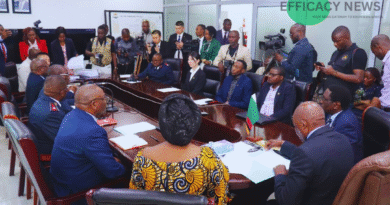President William Ruto Calls for Comprehensive Reforms at the IMF to Address Emerging Global Challenges
Kenyan President William Ruto has called for significant reforms within the International Monetary Fund (IMF) to better address the emerging global challenges faced by its member countries.
In a detailed statement, President Ruto emphasized the necessity for the IMF to evolve and respond to the contemporary needs of its diverse global membership.
“The IMF must listen to the needs of its global membership and adapt to emerging challenges,” stated President Ruto. He highlighted the institution’s evolution over its eight-decade history, from its origins at the Bretton Woods conference to its current role encompassing 190 member countries, including Africa’s 54 members.
Reflecting on the IMF’s historical shift from supporting fixed exchange rates to promoting flexible exchange rates, President Ruto pointed out the institution’s transformation into a development financing body.
He noted that the IMF’s current portfolio stands at $112 billion across 90 countries, translating to an average of just over $1.2 billion per borrower. However, excluding the largest borrowers such as Argentina, Egypt, and Ukraine, the average falls to under $700 million per borrower.
Addressing the critical need for a modern financial system, President Ruto emphasized the intertwined challenges of development and climate change.
He referred to recent global conferences, including the UN Sustainable Development Goals Summit and COP28, which underscored significant funding gaps and systemic dysfunctions in addressing these issues.
“The future driver of global economic growth will be the Global South, with sub-Saharan Africa expected to double its share of the global workforce by 2050,” Ruto said.
He stressed that reforming the multilateral financial system is crucial to addressing climate vulnerability and economic fragility, which have been exacerbated by global shocks.
Ruto cited recent natural disasters in East Africa and the Horn of Africa, including severe droughts and devastating floods, as examples of the urgent need for a responsive and adaptable IMF.
He outlined a consensus among international officials on four key areas of reform: lending instruments, issuance of special drawing rights (SDRs), addressing debt distress, and governance reforms.
Ruto criticized the current “exceptional access policy” of the IMF for being restrictive and imposing punitive surcharges, calling for a decoupling of lending from quota systems and more flexible financial instruments.
He also advocated for reforms in the issuance of SDRs, highlighting the disproportionate allocation that favors developed economies over low-income countries.
“Current voting rights in international financial institutions do not reflect today’s economic and demographic realities,” Ruto added, calling for more equitable representation and governance reforms to align with the contributions of the Global South.
Ruto also pointed to the urgent need for comprehensive debt-refinancing programs, akin to the Brady Plan of the 1980s, to address the growing debt crisis in developing countries.
He noted that sovereign defaults and rising bond yield spreads indicate severe distress, necessitating immediate intervention.
“The future relevance of the IMF will depend on its ability to adapt to these emerging challenges and listen to the needs of its global membership,” Ruto concluded.
He expressed optimism that with cooperative and concerted efforts, the IMF can continue to be a cornerstone of global stability for generations to come.



